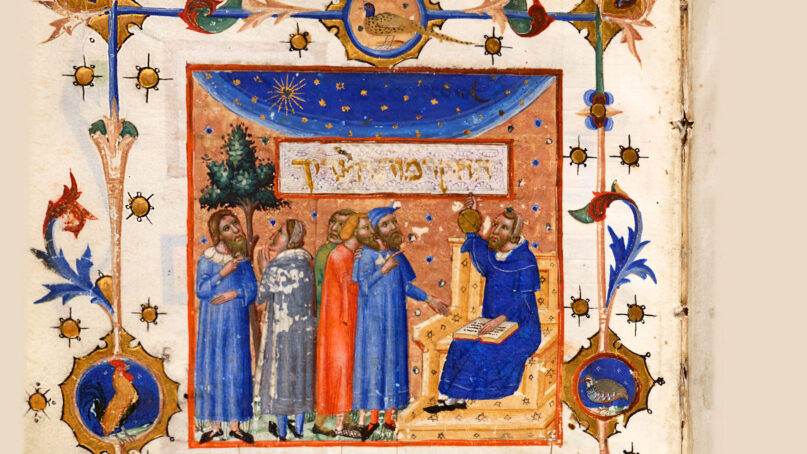This is a different kind of blog post. This is not about a Jewish or spiritual issue with national or international dimensions. This is not about antisemitism, or secularism, or about the intersection of Judaism and popular culture.
This is much “smaller,” or perhaps, it is so much larger.
This is about my colleague, Rabbi Jeffrey Sirkman, who has served and led Larchmont Temple in Larchmont, NY for his entire career. Rabbi Sirkman’s usual gig is to help his people. Now, he and his family are the ones in need of help.
Rabbi Sirkman’s son, Aaron, needs a kidney. And, fast.
The members of the Sirkman family are not medically eligible to donate a kidney. The chance of Aaron receiving a kidney without an organ designated for him is small. That process could take years, and Aaron would require ongoing dialysis.
The way to expedite the process (and not rely on a multi-year waiting list) is to find a donor willing to have one of their kidneys either directed to Aaron.
Specifically: any healthy individual, male or female, 18-75 (with a preference for under 55). There is also the possibility of swapping kidneys with someone else to get a kidney for Aaron.
Why am I writing about this?
Because saving a life — pikuach nefesh — is the ultimate religious issue. Jewish law puts life at the very top of its moral pyramid — above ritual, itself. Someone who is pregnant and/or ill cannot fast on Yom Kippur. If a life is in danger, an observant Jew must drive on Shabbat.
Go back to the Bible — to the oft-quoted Leviticus 19:16 — “You shall not stand idly by the blood of your neighbor.” The medieval sage and physician, Maimonides, emphasizes: “Anyone who is able to save a life, but fails to do so, violates ‘You shall not stand idly by the blood of your neighbor.'”
But, there is more. Consider the statement of Maimonidies that might be his most famous. That is the “Ladder of Tzedakah.” The great sage lists various kinds of tzedakah (righteous giving), giving absolute priority to a business relationship that prevents the recipient to fall into poverty.
Just beneath that highest rung is the act of anonymous giving and receiving (when neither the giver nor recipient know each other); and, then, giving when the giver knows the identity of the recipient, and the recipient knows the identity of the giver; and then, when both giver and recipient know each other’s identities.
While Maimonides might have thought that some kinds of giving are “better,” there is no question — all acts of altruistic giving are holy acts.
But, let us re-imagine the meaning of tzedakah — as not only financial help, but the act of helping from that which is uniquely and irretrievably yours — your own body.
I am humbled — no, I tremble with awe — at how many of my colleagues have donated kidneys. A short list (and there are others who have donated other organs):
- The late Rabbi Avraham Yeshayahu Heber founded a kidney donation organization, helping eight hundred people get kidneys.
- My Orthodox colleague and teacher, Rabbi Shmuly Yanklowitz, donated a kidney. I have known Rabbi Shmuly for years; this act of generosity is simply an extension of who he is.
- So did Rabbi Larry Rothwachs, a rabbi in Teaneck, NJ.
- Rabbi Nosson Blumes, a Chabad rabbi, donated a kidney.
- So did Rabbi Michael Ungar.
- So did Rabbi Deborah Zuker.
- Take a look at Renewal: A Comprehensive Resource for Kidney Donors and Recipients.
Likewise, I have colleagues who have received kidneys.
I know many people who are major philanthropists. Their vision and largess has helped build and transform worlds. Some do it secretly, or modestly. Others have buildings or wings with their names inscribed upon them.
You can put a plague on a building.
And, you can put an invisible, indelible plaque on someone’s life.
Right now, someone out there is reading this, and also trembling. Who knows? You might have a kidney that has someone’s name on it. Or, you might know someone who has that kidney.
If you or someone you know wants to have a confidential discussion about this process or procedure, consider donating a kidney for the Sirkmans, go to the Mt. Sinai Center for Organ Donation where they can begin the screening process: Mt. Sinai Center for Organ Donation.
On Friday evening, as Shabbat begins, Jews traditionally sing a hymn, “Shalom Aleichem,” welcoming the angels that accompany us.
One of you might be the angel that the Sirkman family needs right now.
That’s the thing about angels, divine emissaries.
Usually, you don’t know that you are one — until there is a mitzvah with your name on it.
This could be it.






